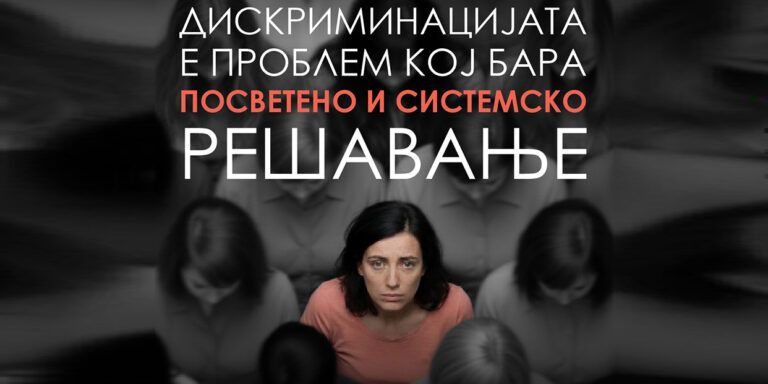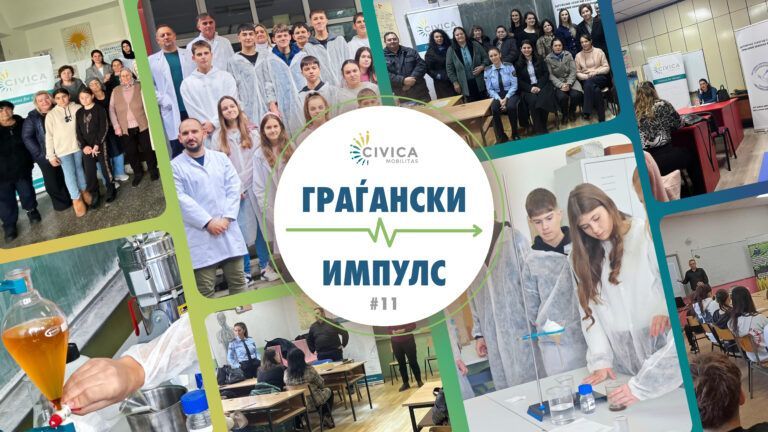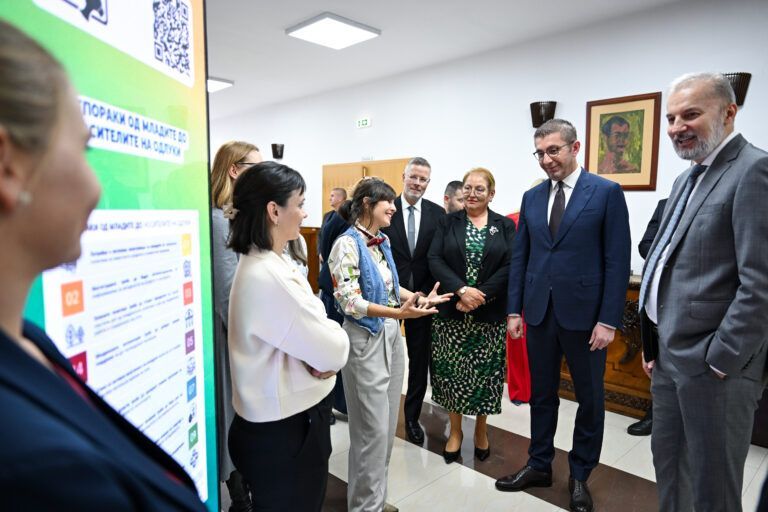CSOs asked for bigger involvement of the authorities for state funding
“We are not pessimists, we are desperate realists!”, said Selmin Nesimoski from the Association Youth for Public Interest from Debar, reflecting the biggest part of the discussion at the today’s Civica Mobilitas Thematic Forum entitled “State Funding for Bigger Sustainability of CSOs”.
“The fight for bare survival disables the work of the civil sector”, said Kristina Kolozova from the Swiss Embassy in the country in her opening address. She stressed that the primary task of the sector is to be a watchdog of the work of the state institutions, correct and indicate the irregularities or shortcomings and of course, to offer solutions that will be useful for their constituents, the citizens.
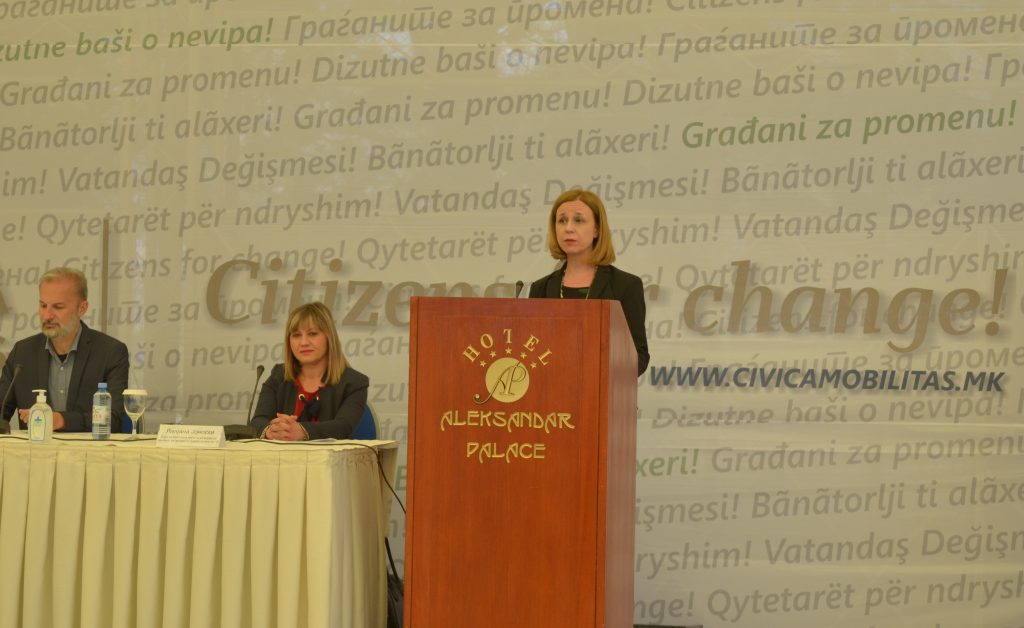
According to Aleksandar Krzhalovski, the National Tea, Leader of Civica Mobilitas, the support for the CSOs in Macedonia after more than 10 years of debates, has reached barely 10 million Euro. “As a comparison, the state support to CSOs in Serbia is 120 million Euro, in Croatia 230 million Euro, and in Slovenia 300 million Euro”, said he and added that the Government had undertaken an obligation to support the sector with 30 million Euro as early as this year, according to the Strategy for Cooperation with and Development of the Civil Sector. Instead of increasing, the CSOs face decrease of the finances that the state has reserved for them.
Despite the nice words on the creativity and innovativeness of CSOs, the State Secretary of the Ministry for Political System and Relations among the Communities Rami Qerimi did not persuade the participants at the Thematic Forum that the Government considers them partners. He stressed that the Ministry from which he comes made the preparations for publishing a call for financing of CSOs and their activities in the areas which it covers and asked for understanding for the current situation which is burdened with various crisis. “I encourage you to knock on every door, tell your ideas and ask for finances for your creative processes”, he said.
Vesna Tasevska, Assistant Head of the Sector for Policy Analysis and Coordination at the General Secretariat of the Government spoke about the practice to grant state funding to CSOs. She stressed that in the period of 2008-2020 the government granted almost 3 million EURO for CSO projects. Only as a comparison, in the same period Civica Mobilitas provided 20 million Euro for support to CSOs.
Liljana Jonoski, a member of the Working Group for reforms of the system of state funding of CSOs stressed that the financial sustainability of CSOs should be the basis for stable and constrictive civil society. “We do not expect and we should not be fully financed by the state, but we are far from 1/3 which is a government promise and a world standard”, she said and added that the funds increase thanks to pressure from the sector. According to her, there is improvement in the transparency and it is good that the organizations are included in the creation of the support programme. “Still, we have to be disappointed by the fact that the processes go back, and instead of increasing the budget for CSOs, now we have 0 debars in it”, said Jonoski.
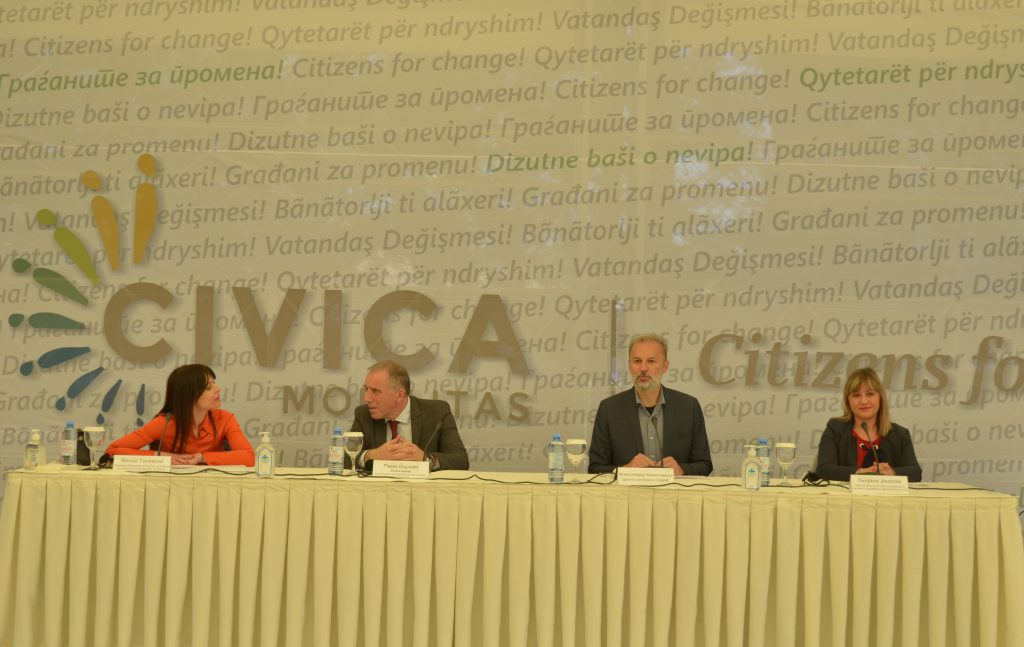
For Bojan Jovanovski, Executive Director of Hera, it is more appropriate to talk about state defunding, because the organizations are far from sustainability. “We have not heard of specific obligations and efforts by the state bodies”, he said and added that because of cuts in the financing some organizations will have to reorganize and some might close.
According to Dimitar Ilchov from Misla CSO, financing is not appropriate to the percentage of employees in the sector which with full-time and temporary employments reaches 2% and the support is far below 1%. Dushko Hristov from the Food Bank expressed his doubts about the non-bias when state funds are allocated. “We have to call things their real names if we want them to change”, he said.
The participants spoke about the co-financing fund, the relation to local organizations and the financing by the municipalities. “We don’t have money for employments, we have a problem covering the office expenses – shall we close down?” asked Mustafa Sidov from Svetla Idnina from Kochani. The crises that the world and our country face should not be an alibi for the state funding to CSOs. “The question is if the Government really wants to hear the solutions offered by CSOs?” asked Andrej Senix from “Stronger Together” and why is then an impression that they ignore us?” he added. He proposed that the conclusions from today, as well as the articulated dissatisfaction are formally conveyed to the Government, and the CSOs should think if the time has come for an articulated protest.
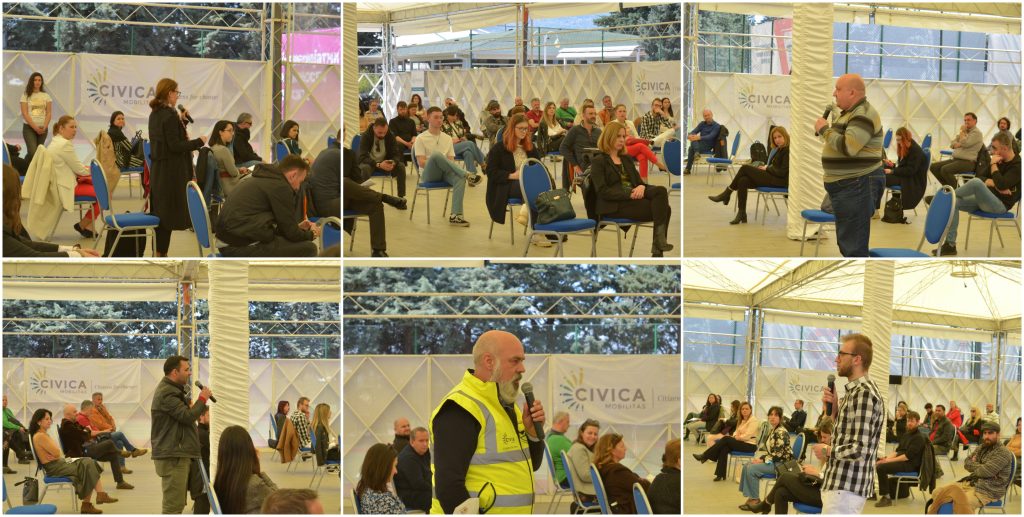
Improving the system of state financing is one of the civil society priorities, and according to the Work Programme of the Government of RNM for the period of 2022-2024, it is a priority of the executive power in the country. Still, the recent restructuring and cutting down of the budgets for the CSOs do not confirm the pledges of the Government to improve the system of state financing of the CSOs.
The Civica Mobilitas thematic forum provides space for discussion between the CSO representatives, institutions at national or local level and all other stakeholders important for resolving the issues that are discussed.
Civica Mobilitas is a Swiss Embassy programme for support of the civil society, implemented by NIRAS from Denmark, the Macedonian Center for International Cooperation (MCIC) and FCG from Sweden.
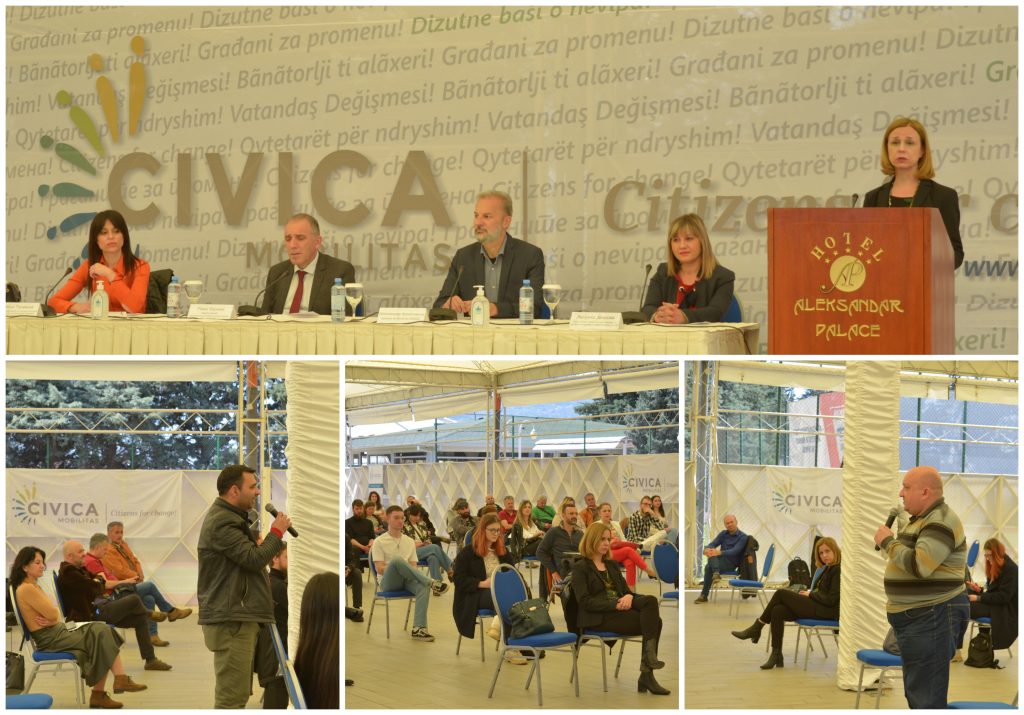



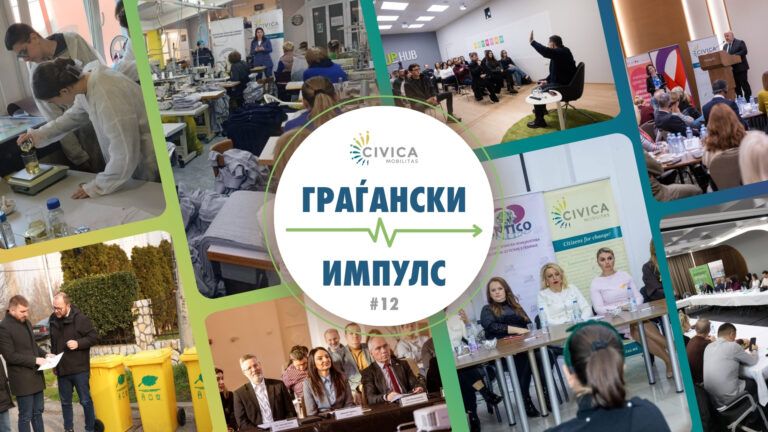
![Sre]ni praznici(2)](https://civicamobilitas.mk/wp-content/uploads/2025/12/sreni-praznici2-768x432.jpg)
